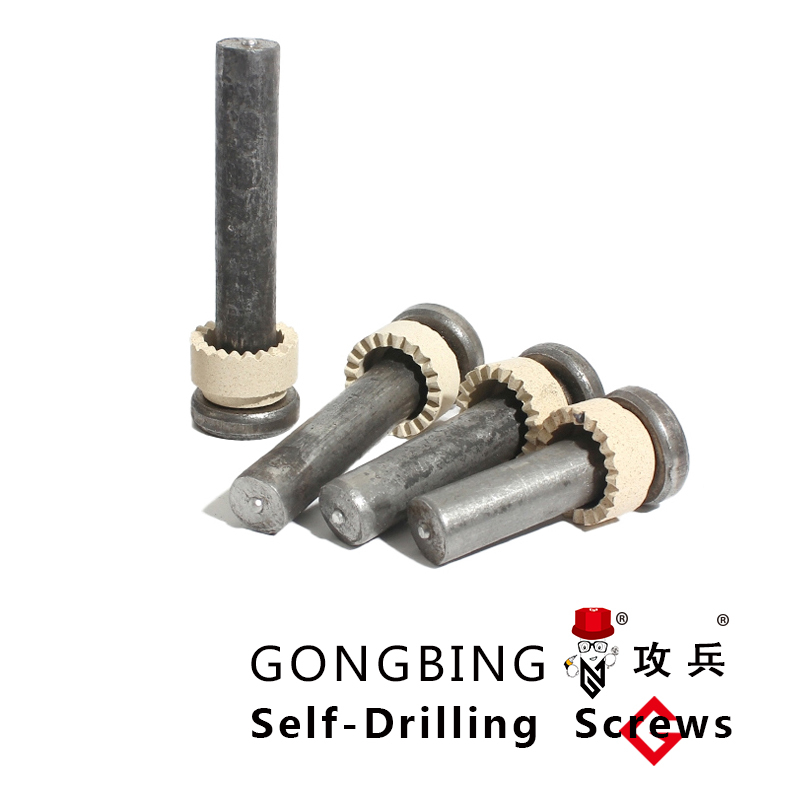Understanding the Benefits of Self-Drilling Screws for Roofing Applications
Understanding Roofing Self-Drilling Screws An Essential Component for Construction
When it comes to roofing in construction, the choice of materials and fasteners can significantly impact the durability and longevity of a structure. Among the myriad of fastening options available, roofing self-drilling screws have emerged as a preferred choice for many contractors and builders. These specialized screws are designed explicitly for securing roofing materials to underlying structures, ensuring a sturdy and weather-resistant finish.
What Are Roofing Self-Drilling Screws?
Roofing self-drilling screws, often referred to as self-tapping screws, are fasteners characterized by their unique design. Unlike traditional screws, which require a pre-drilled hole, these screws come equipped with a drill-like tip that allows them to penetrate various materials, including metal and wood, without the need for additional drilling tools. This feature not only saves time but also simplifies the installation process, making it an efficient choice for roofing applications.
Key Features and Benefits
1. Ease of Installation One of the most significant advantages of roofing self-drilling screws is their user-friendly installation. Builders can quickly drive these screws directly into the roofing panels and the underlying substrate, reducing labor costs and speeding up project timelines.
2. Strong and Durable Made from high-quality materials, these screws offer exceptional strength and resistance to various environmental factors, including wind, rain, and UV exposure. This durability ensures that roofing installations remain secure over time, minimizing the risk of leaks or damage.
3. Corrosion Resistance Roofing self-drilling screws are often treated with protective coatings, such as zinc plating or polymer finishes. These coatings enhance their resistance to rust and corrosion, making them ideal for use in diverse climates and conditions. This is particularly crucial in areas prone to heavy rainfall or fluctuating temperatures.
roofing self drilling screws

4. Versatility These screws are designed to work with a wide array of roofing materials, including metal panels, asphalt shingles, and tile roofs. Their versatility makes them suitable for residential, commercial, and industrial applications.
5. Secure Connections The design of self-drilling screws provides a tight, secure connection that is essential for maintaining the integrity of the roof. Their ability to create a strong bond between the roofing materials and the substrate helps prevent issues related to shifting and settling.
Choosing the Right Roofing Self-Drilling Screws
When selecting roofing self-drilling screws, several factors should be considered to ensure optimal performance. Firstly, it is essential to choose the appropriate size and length of screws based on the thickness of the roofing material and the substrate. Additionally, the type of coating should be selected based on the environmental conditions of the installation site. For instance, areas with high humidity or coastal environments may benefit from screws with enhanced corrosion resistance.
Moreover, it is crucial to pay attention to the screw's thread design. Screws with finer threads can offer better grip on thinner materials, while those with broader threads may be more suitable for thicker substrates.
Conclusion
Roofing self-drilling screws are indispensable for modern roofing systems. Their user-friendly nature, coupled with their strength and durability, makes them an ideal choice for both new constructions and renovations. When properly selected and installed, these screws not only enhance the efficiency of roofing projects but also contribute to the overall longevity and reliability of the roofing system. As the construction industry evolves, roofing self-drilling screws will continue to play a vital role in the maintenance of robust and long-lasting structures.
-
Weatherproof Plastic Expansion Anchors for OutdoorNewsJun.06,2025
-
Sustainability in the Supply Chain: Eco-Friendly TEK Screws ProductionNewsJun.06,2025
-
Load-Bearing Capacity of External Insulation FixingsNewsJun.06,2025
-
Double Head Bolts: Enhancing Efficiency in Industrial MachineryNewsJun.06,2025
-
Corrosion Resistance in Chipboard Screws: Coatings for Wholesale DurabilityNewsJun.06,2025
-
Butterfly Toggle Bolts : Enhancing Structural ResilienceNewsJun.06,2025
